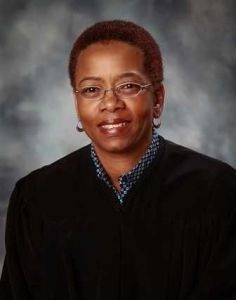BENTON - Oldcastle Lawn and Garden, defending a class action claim that it violated fingerprint privacy, switched law firms in the midst of depositions and a brush with sanctions.
Jackson Lewis of New York City relieved Littler Mendelson of San Francisco on Nov. 20 in proceedings before U.S. District Judge Staci Yandle.
Jody Mason of Jackson Lewis in Chicago asked Yandle to delay depositions, stating she needed to review information she hadn’t yet received.
Yandle denied the motion.
She had declined to sanction Littler Mendelson lawyers on Nov. 17 but advised them that failure to comply with orders in the future would subject them to appropriate sanctions.
Original plaintiff Jermaine Minor, who worked about 25 shifts at Oldcastle in Sauget for staffing agency Express Services, filed the complaint in 2021.
His counsel, William Beaumont and Robert Costales of Chicago, alleged violations of state law on biometric privacy, or the Biometric Information Privacy Act (BIPA).
They claimed Oldcastle failed to explain the purpose of collecting fingerprint data, or provide schedules for retention and destruction, or obtain written consent.
They sought $1,000 for negligent violations and $5,000 for reckless and intentional violations.
Plaintiffs counsel proposed to certify a class of workers at Oldcastle locations throughout the state.
Oldcastle’s website shows the Sauget location, four in the Chicago area, one in Marseilles, and one in McLean.
Yandle stayed the action while the Illinois Supreme Court considered whether a violation occurs once at the start of employment or twice every day.
This year, four Supreme Court justices ruled that each scan violates the law.
Jermaine Minor died while the case was pending.
The action against Oldcastle resumed with son Jermon Minor substituting for his father.
Orly Henry in Littler Mendelson’s Chicago office answered the complaint in April in association with Patricia Martin and Elizabeth Stevenson of the firm’s St. Louis office.
Henry claimed Jermaine Minor failed to mitigate his damages.
“It was entirely clear to plaintiff why he was placing his finger in a device prior to entering or leaving his jobsite, yet plaintiff did not inquire as to what information was obtained or any related information, or express any reservations about participating in that process,” she wrote.
Henry alleged clauses in the U.S. Constitution on due process and excessive fines barred the relief Jermon Minor sought.
She claimed neither Jermaine Minor nor the class suffered harm.
She added that class members had actual and constructive knowledge of risks in the conduct that the complaint alleged was wrongful.
Henry claimed any recovery should be barred or reduced by the degree to which Minor or a class member voluntarily assumed the risks.
In September, Costales moved to amend the complaint so Minor could add corporate affiliate Oldcastle APG as a defendant.
He claimed Oldcastle revealed that the affiliate purchased and implemented the clocks at issue, likely making the affiliate liable.
He argued that if Minor couldn’t amend, he might sue the affiliate separately.
Henry opposed the motion in October and questioned not only whether Jermon Minor could bring a second suit but also whether he could appropriately represent a class.
She claimed he had little knowledge of his claims much less the requisite knowledge about claims of the class.
Meanwhile, Minor moved to compel supplemental responses to discovery requests.
Yandle referred it to Magistrate Judge Gilbert Sison, who held a hearing on Oct. 24.
He posted notice that it was resolved, but it wasn’t.
On Nov. 2, Oldcastle moved to stay discovery pending a ruling on amending the complaint.
Mason of Jackson Lewis entered an appearance on Nov. 3, but Henry, Martin, and Stevenson remained on the docket.
Minor moved for a contempt order on Nov. 15, stating Sison ordered Oldcastle to supplement responses by Nov. 14.
Beaumont wrote, “Rather than comply, defendant moved to stay discovery.”
He asked Yandle to order identification of each person who answered or assisted in answering discovery requests.
He also asked Yandle to order production of contracts for time clocks and documents establishing the number of individuals who used it.
Yandle mooted the motion to stay on Nov. 17, by granting amendment of the complaint.
She ordered production of documents and witnesses.
She found Oldcastle’s belief that it was not appropriate to move discovery forward until she ruled on the stay motion was not a legitimate basis to disregard discovery obligations.
Three days later, Henry, Martin, and Stevenson moved to withdraw.
Henry wrote, “Defendants wish to move forward being represented by Jackson Lewis.”
Yandle granted their motion.
A day later, Mason moved to stay discovery, stating she awaited transfer of information.
She claimed she anticipated she would move to dismiss the complaint.
In the alternative, she requested an extension of time to complete the discovery at issue.
Yandle extended the deadline for responding to the complaint to Dec. 18 and denied a stay or extension of discovery.
She has set jury trial to begin next November.
